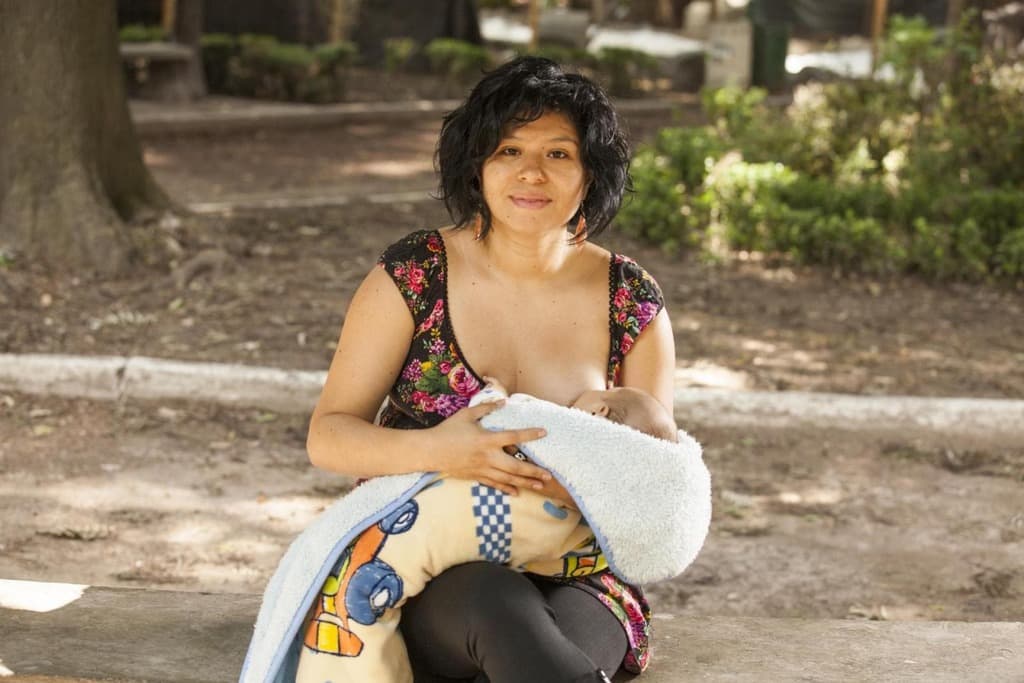Breastfeeding is a natural way to nourish a newborn, giving them nutrients and antibodies that support their growth and development. Despite its many benefits, breastfeeding is often surrounded by misconceptions that can discourage new mothers from choosing it. According to the CDC, 84% of U.S. mothers initiate breastfeeding, yet only 58% continue beyond six months, often because of misinformation. These myths tend to come from cultural biases, outdated practices, or just plain wrong information. In this post, we will bust some of the most common breastfeeding myths and give you the facts you need to know.

Why breastfeeding matters
Here is why breastfeeding is worth the effort:
- For babies, it reduces risks of infections, SIDS, and chronic conditions like diabetes.
- For mothers, it lowers risks of breast cancer, ovarian cancer, and postpartum depression.
- Skin-to-skin contact during feeding releases oxytocin, which strengthens emotional connection.
Read about Benefits of Exclusive Breastfeeding
Myth 1: Breastfeeding comes naturally and is easy
Breastfeeding may be natural, but it is not always easy.
Reality: Many mothers need practical support with positioning their baby for breastfeeding and making sure their baby is correctly attached to the breast. Breastfeeding takes time and practice for both mothers and babies. It is also time intensive, so mothers need space and support at home and work.
Myth 2: The colostrum or “first milk” is dirty
The myth states that women should not feed their baby the first milk (also known as the colostrum) as it is too dirty and will be unhealthy for the baby. Some cultures advise discarding colostrum, calling it “impure.”
Reality: In reality the colostrum is one of the best things that you can give your baby. The sooner you begin to breastfeed your baby the more nutritional benefit your baby will get from it. Breastfeeding is important to your baby’s health, including the colostrum. Read our detailed blog Colostrum, the Liquid Gold: Baby’s First Vaccine
Myth 3: It’s normal for breastfeeding to hurt
One of the most common misconceptions about breastfeeding is that it is always painful. Society often normalizes breastfeeding pain, dismissing concerns.
Reality: Some mothers may experience discomfort in the early days of breastfeeding as they and their baby learn to latch properly, this pain is usually temporary. Pain is often a sign of an improper latch, which can be resolved with the help of a lactation consultant or a knowledgeable healthcare professional.
Myth 4: Wash your nipples before breastfeeding
Another common misconception is that you should wash your nipples before breastfeeding.
Reality: Washing your nipples before breastfeeding isn’t necessary. When babies are born, they are already very familiar with their own mother’s smells and sounds. The nipples produce a substance that the baby smells and has ‘good bacteria’ that helps to build babies’ own healthy immune system for life.
Myth 5: Separate a newborn and mother to let the mother rest
Hospitals sometimes prioritize maternal rest over immediate bonding.
Reality: Doctors, nurses and midwives often encourage the practice of ‘skin-to-skin,’ also known as kangaroo mother care, immediately after birth. The first 60 minutes of a baby’s life is often referred to as “The Golden Hour”.
Myth 6: Many mothers can’t produce enough milk
This is one of the most common misconceptions among mothers, and they worry that they do not produce enough milk.
Reality: Almost all mothers produce the right amount of milk for their babies. Breastmilk production depends on how well the baby is latched on to the breast, the frequency of breastfeeding, and how well the baby is removing milk with each feeding.
Myth 7: You shouldn’t breastfeed if you’re sick
Reality: Depending on the kind of illness, mothers can usually continue breastfeeding when they’re sick. You need to make sure you get the right treatment, and to rest, eat and drink well. In many cases, the antibodies your body makes to treat your disease or illness will pass on to your baby, building his or her own defenses.
Myth 8: Formula is nutritionally equal to breastmilk
Reality: Formula does not provide the same antibodies and tailored nutrients. Breastmilk adapts to baby’s needs (e.g., higher antibodies during illness). Formula lacks live cells like stem cells and probiotics found in breastmilk.
Myth 9: Breastfeeding causes sagging breasts
Reality: Sagging is caused by pregnancy hormones, aging, and genetics, not breastfeeding. Wear supportive bras and maintain a healthy weight to minimize changes.
Myth 10: Breastfeeding causes breast cancer
Reality: Breastfeeding does not cause breast cancer. Breast cancer is caused by genetic mutations and environmental factors. Breastfeeding actually lowers the risk of breast cancer.
Myth 11: Breastfeeding past 1 year has no benefits
Reality: WHO recommends breastfeeding up to 2 years or longer. Benefits for toddlers include stronger immunity, emotional security, and balanced nutrition.
FAQs
Can I breastfeed after breast surgery? Yes, though milk supply may vary. Consult a lactation specialist.
How long should feedings last? Follow baby’s cues, typically 10-45 minutes per side.
When to introduce bottles? Wait 3-4 weeks to avoid nipple confusion.
Conclusion
Breastfeeding offers real benefits to both mother and baby. By clearing up these myths, we hope to help mothers make informed choices about breastfeeding. Every mother’s experience is different, and finding the right information and support matters. If you are struggling, talk to a lactation consultant or your healthcare provider for personalized help.

Source: UNICEF